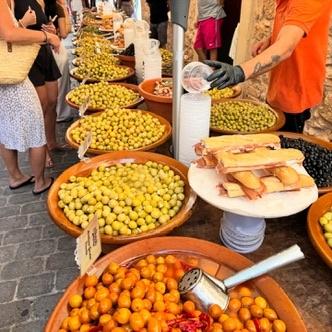What are the different uses of olives cultivated in Mallorca beyond oil production?
Similar Topics
mallorcan olives
olive oil alternatives
table olives mallorca
traditional olive curing
empeltre olives
arbequina olives
olive crafts mallorca
agrotourism mallorca
Olives cultivated in Mallorca serve a variety of purposes beyond just the production of olive oil. While the island is renowned for its flavorful olive oils, many of the olives themselves are preserved and consumed as table olives, a staple in Mallorcan cuisine. These olives are often cured using traditional methods such as brining, dry curing with salt, or fermenting, which enhances their distinctive taste and texture. The local varieties, such as the empeltre and arbequina olives, are prized for their balanced flavor, making them an ideal accompaniment to cheeses, breads, and the numerous tapas dishes found across the island.
In addition to culinary uses, olives from Mallorca also play a cultural and artisanal role. The stones, or pits, from these olives are sometimes repurposed in local crafts, used to create jewelry or decorative items, reflecting the sustainable approach to agriculture practiced in the region. Furthermore, the byproducts of olive cultivation, including pruning waste from the trees, are commonly used as natural fuel or compost, contributing to traditional farming techniques that nurture the island's diverse ecosystem.
Olives also contribute to the island’s economy through their role in agrotourism. Olive groves are often part of guided tours and tasting experiences, where visitors learn about the cultivation process, the different curing techniques, and how to appreciate the unique flavors of Mallorcan olives. This interaction not only promotes local produce but also preserves the agricultural heritage of Mallorca. Overall, olives are more than just the source of oil; they are deeply embedded in the gastronomic, cultural, and environmental fabric of the island.
In addition to culinary uses, olives from Mallorca also play a cultural and artisanal role. The stones, or pits, from these olives are sometimes repurposed in local crafts, used to create jewelry or decorative items, reflecting the sustainable approach to agriculture practiced in the region. Furthermore, the byproducts of olive cultivation, including pruning waste from the trees, are commonly used as natural fuel or compost, contributing to traditional farming techniques that nurture the island's diverse ecosystem.
Olives also contribute to the island’s economy through their role in agrotourism. Olive groves are often part of guided tours and tasting experiences, where visitors learn about the cultivation process, the different curing techniques, and how to appreciate the unique flavors of Mallorcan olives. This interaction not only promotes local produce but also preserves the agricultural heritage of Mallorca. Overall, olives are more than just the source of oil; they are deeply embedded in the gastronomic, cultural, and environmental fabric of the island.
🧩 Related Questions
Related Question
What traditional Mallorcan dishes prominently feature olives or olive oil that tourists should try?
Related Question
What alternatives to well water extraction are being explored to secure Mallorca’s water future?
Related Question
How can tourists help protect bee populations while visiting Mallorca?
